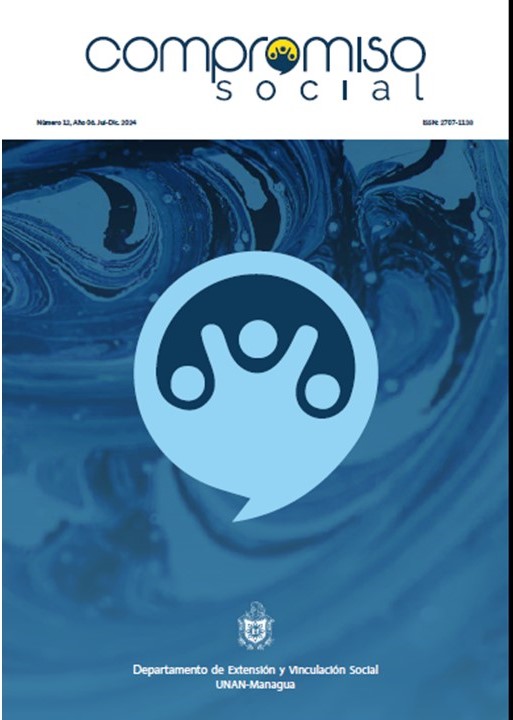Study approaches: exploration of ancestral knowledge about native plants in the traditional diet of rural communities in Carazo
DOI:
https://doi.org/10.5377/recoso.v7i12.19644Keywords:
Traditional food, rural community, knowledge, native plants, ancestral knowledgeAbstract
The research focuses on ancestral knowledge about native plants in the
traditional diet of rural communities in Carazo, Nicaragua. The aim is to rescue
and value this generationally transmitted knowledge, which is fundamental
for sustainability and cultural identity. The importance of this knowledge is
highlighted in the context of globalization that threatens cultural diversity
and food sovereignty. Qualitative techniques such as ethnographic interviews
and participatory workshops will be used to explore this knowledge in depth.
The results of the study show an alarming loss of cultural identity driven by
globalization, while some groups, such as the Mangue, strive to preserve
ancestral practices, such as the milpa agricultural system, which is fundamental
to their food sovereignty. These findings not only highlight the urgency of
protecting cultural diversity, but also seek to drive the revitalization of
traditional medicine and local food systems. Through this visibility, the study
promotes more sustainable and resilient food models, which can become
inputs for public policies aimed at supporting agroecological systems and
traditional knowledge. The importance of the work lies in its call to recognize
and safeguard ancestral knowledge, considering it as an invaluable heritage
for humanity and essential pillars to build more just and equitable societies.
1173
References
Baena, M. y Jaramillo, S. (2003). Material de apoyo a la capacitación en conservación in situ de la diversidad vegetal en áreas protegidas y en fincas. Bioversity International.
Bozu, Z. y Canto Herrera, P. (2009). El profesorado universitario en la sociedad del conocimiento: competencias profesionales docente. Revista de Formación e Innovación Educativa Universitaria (REFIEDU), 2(2), 221–231.
Carranza Patiño, H. M., Tubay Moreira, M. F., Espinoza Briones, H. B., y Chang Muñoz, W. L. (2021). Saberes ancestrales: una revisión para fomentar el rescate y revalorización en las comunidades indígenas del Ecuador
[Ancestral knowledge: a review to promote rescue and revaluation in the indigenous communities of Ecuador]. Zenodo. https://doi.org/10.5281/zenodo.5659722
Chianese, F. (2016). El valor de los conocimientos tradicionales.Fals Borda, O. (1999). Orígenes universales y retos actuales de la IAP (Investigación Acción Participativa). Análisis Político, (38), 71-88.
Greenwood, M. y Lindsay, N. M. (2019). A commentary on land, health, and Indigenous knowledge(s). Global Health Promotion, 26(3_suppl), 82–86. https://doi.org/10.1177/1757975919831262
Martínez Pérez, T., y Calero Borge, W. (2012). Plantas útiles de Morrito, Río San Juan, Nicaragua. Managua: Universidad Nacional Agraria.
Meza Fernández, M. (2015). Carazo, corazón de Nicaragua. Universidad Nacional Autónoma de Nicaragua, Managua. Recuperado de https://revistas.unan.edu.ni/index.php/Torreon/article/view/3362
Nonaka, I. (1994). A dynamic theory of organizational knowledge creation. Organization Science, 5(1), 14-37
Portelli, A. (1991). The death of Luigi Trastulli and other stories: Form and meaning in oral history. Albany: State University of New York Press.
Turrent, F. (1997). La milpa: un sistema agrícola mesoamericano.
Relación de Entrevista
Potosme, R. (Comunicación Personal 26 de abril, 2024)




